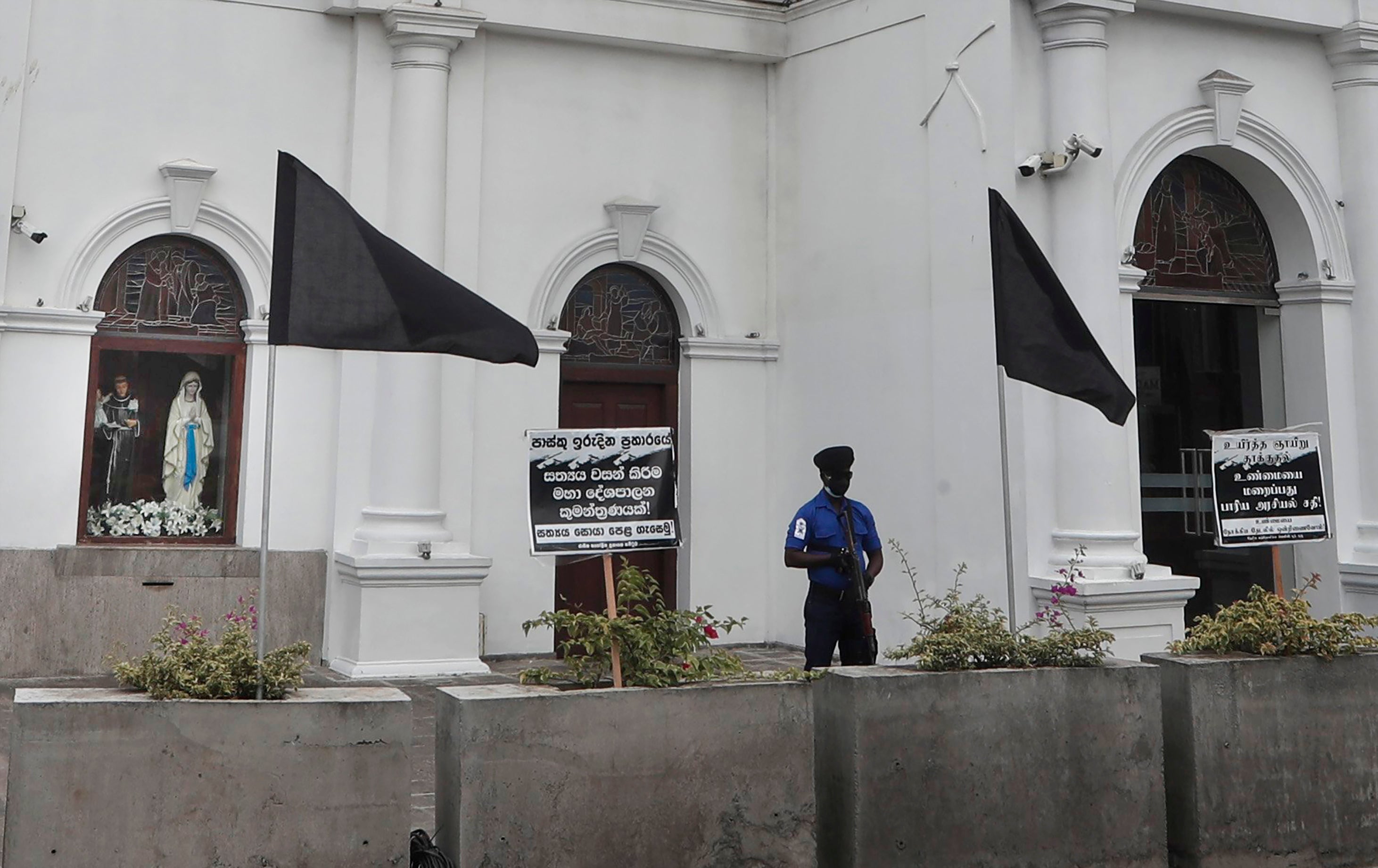With black flags, Sri Lanka Christians protest bombing probe
Sri Lanka’s Christian community has hoisted black flags at churches and homes to express anger over the government’s investigation into the 2019 Easter Sunday bomb attacks

Your support helps us to tell the story
From reproductive rights to climate change to Big Tech, The Independent is on the ground when the story is developing. Whether it's investigating the financials of Elon Musk's pro-Trump PAC or producing our latest documentary, 'The A Word', which shines a light on the American women fighting for reproductive rights, we know how important it is to parse out the facts from the messaging.
At such a critical moment in US history, we need reporters on the ground. Your donation allows us to keep sending journalists to speak to both sides of the story.
The Independent is trusted by Americans across the entire political spectrum. And unlike many other quality news outlets, we choose not to lock Americans out of our reporting and analysis with paywalls. We believe quality journalism should be available to everyone, paid for by those who can afford it.
Your support makes all the difference.Sri Lanka’s Christian community hoisted black flags at churches and homes on Saturday to express anger over the government’s investigation into the 2019 Easter Sunday bomb attacks, which killed 269 people.
Twenty-five people were charged last week in connection with the bombings. But the country's Catholic Church says these could be “smaller fish,” and accuses the government of still not taking steps to identify the true conspirators. The head of the archdiocese of Colombo Cardinal Malcolm Ranjith, has raised questions over allegations that state intelligence personnel knew and met with the attackers.
Two local Muslim groups that had pledged allegiance to the Islamic State group were blamed for the six near-simultaneous suicide bomb attacks, which hit three churches and three luxury hotels on April 21, 2019. It is not known if the groups had actual links to the Islamic State.
Under cloudy skies, a row of large black flags billowed in the wind Saturday in front of St. Anthony’s Church, which was targeted in the 2019 attacks. Behind a concrete barrier, religious statues overlooked armed police and signs that read: “Hiding the truth is a grand political conspiracy.”
In some areas, Muslim residents hoisted black flags in a show of solidarity.
Church bells tolled at 8:45 a.m., the time the first blast occurred. Prayer services were held inside St. Anthony's, but with empty pews because of a 10-day coronavirus lockdown that began late Friday.
Still, a small group carried out a silent protest at St. Sebastian’s Church in Negombo, a predominantly Catholic area north of Colombo where 115 people were killed.
“The government has swept the whole thing under the carpet,” said Manilal Ranasinghe, a resident of St. Mary’s Parish in Dehiwala, a Colombo suburb. “The former president has to be held responsible."
Friction and a communication breakdown between then-President Maithripala Sirisena and then-Prime Minister Ranil Wickremesinghe were blamed for the government’s failure to act on near-specific foreign intelligence warnings before the attacks.
About 7% of Sri Lanka’s 21 million people are Christian, and most are Roman Catholic, according to Mathew Schmalz, a professor at the College of the Holy Cross and an expert on Christianity in South Asia.